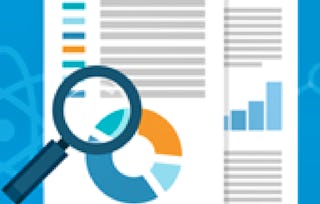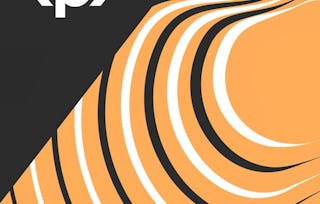In this course you will get an introduction to the main tools and ideas in the data scientist's toolbox. The course gives an overview of the data, questions, and tools that data analysts and data scientists work with. There are two components to this course. The first is a conceptual introduction to the ideas behind turning data into actionable knowledge. The second is a practical introduction to the tools that will be used in the program like version control, markdown, git, GitHub, R, and RStudio.

The Data Scientist’s Toolbox

The Data Scientist’s Toolbox
This course is part of multiple programs.



Instructors: Jeff Leek, PhD
770,228 already enrolled
Included with
34,074 reviews
What you'll learn
Set up R, R-Studio, Github and other useful tools
Understand the data, problems, and tools that data analysts use
Explain essential study design concepts
Create a Github repository
Skills you'll gain
Details to know

Add to your LinkedIn profile
21 assignments
See how employees at top companies are mastering in-demand skills

Build your subject-matter expertise
- Learn new concepts from industry experts
- Gain a foundational understanding of a subject or tool
- Develop job-relevant skills with hands-on projects
- Earn a shareable career certificate

There are 4 modules in this course
In this module, we'll introduce and define data science and data itself. We'll also go over some of the resources that data scientists use to get help when they're stuck.
What's included
5 videos2 readings5 assignments5 plugins
In this module, we'll help you get up and running with both R and RStudio. Along the way, you'll learn some basics about both and why data scientists use them.
What's included
5 videos6 assignments5 plugins
During this module, you'll learn about version control and why it's so important to data scientists. You'll also learn how to use Git and GitHub to manage version control in data science projects.
What's included
4 videos5 assignments4 plugins
During this final module, you'll learn to use R Markdown and get an introduction to three concepts that are incredibly important to every successful data scientist: asking good questions, experimental design, and big data.
What's included
4 videos5 assignments1 peer review4 plugins
Earn a career certificate
Add this credential to your LinkedIn profile, resume, or CV. Share it on social media and in your performance review.
Instructors

Offered by
Explore more from Data Analysis
 Status: Free Trial
Status: Free Trial Status: Free Trial
Status: Free Trial Status: Free Trial
Status: Free Trial
Why people choose Coursera for their career

Felipe M.

Jennifer J.

Larry W.

Chaitanya A.
Learner reviews
- 5 stars
69.47%
- 4 stars
23.16%
- 3 stars
5.26%
- 2 stars
1.12%
- 1 star
0.98%
Showing 3 of 34074
Reviewed on Jun 2, 2017
Nice Course. Basics are very well taught in this course.Thank you JHU and Coursera for this course. I have decided to donate 10% of my first salary to coursera once I am complete this and get intern.
Reviewed on Jun 12, 2017
Pretty easy, and never felt like it was a struggle to find the information that was needed. Basically a setup course for out things you'll need for the likes of R Programming and Data Science work.
Reviewed on Apr 11, 2020
It's a beginning to a host of different courses that are to be followed after this. It makes up a for a good platform to start off the work on R and how to use version control feature of R via GitHub.

Open new doors with Coursera Plus
Unlimited access to 10,000+ world-class courses, hands-on projects, and job-ready certificate programs - all included in your subscription
Advance your career with an online degree
Earn a degree from world-class universities - 100% online
Join over 3,400 global companies that choose Coursera for Business
Upskill your employees to excel in the digital economy
Frequently asked questions
To access the course materials, assignments and to earn a Certificate, you will need to purchase the Certificate experience when you enroll in a course. You can try a Free Trial instead, or apply for Financial Aid. The course may offer 'Full Course, No Certificate' instead. This option lets you see all course materials, submit required assessments, and get a final grade. This also means that you will not be able to purchase a Certificate experience.
When you enroll in the course, you get access to all of the courses in the Specialization, and you earn a certificate when you complete the work. Your electronic Certificate will be added to your Accomplishments page - from there, you can print your Certificate or add it to your LinkedIn profile.
Yes. In select learning programs, you can apply for financial aid or a scholarship if you can’t afford the enrollment fee. If fin aid or scholarship is available for your learning program selection, you’ll find a link to apply on the description page.
More questions
Financial aid available,


